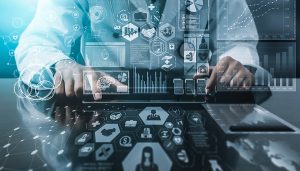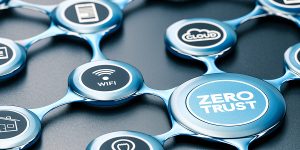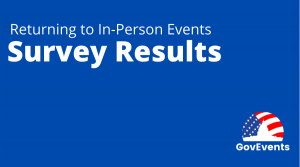 Chief Data Officers (CDOs) are one of the newer positions in government, but their role is quickly becoming one of the most critical. A CDO is charged with overseeing data-related functions, including data management, ensuring data quality, and creating data strategy. For government agencies, this requires close coordination with the Federal Data Strategy and the DoD Data Strategy.
Chief Data Officers (CDOs) are one of the newer positions in government, but their role is quickly becoming one of the most critical. A CDO is charged with overseeing data-related functions, including data management, ensuring data quality, and creating data strategy. For government agencies, this requires close coordination with the Federal Data Strategy and the DoD Data Strategy.
Both of these documents define the specific roles and responsibilities of data officers and provide a framework for working with and securing data. Of course, each agency has unique requirements and missions, leaving the CDO to work out how to apply this guidance and standards to their organization.
Agencies are meeting these guidelines and integrating CDOs in different ways. The Department of Homeland Security (DHS) recently announced a department-level CDO office to better integrate data into its operations and those of other agencies. The need for this level of coordination was underscored as DHS launched a department-wide COVID-19 vaccination campaign in partnership with the Department of Veterans Affairs health centers. DHS needed to identify, contact and manage responses from workers, which meant collecting and reconciling many different datasets from across the department.



 Agility has been a key attribute for success over the past year and a half. Everyone had to quickly adapt in their personal and professional lives to do things in new ways to keep business and society running. Even the great bureaucracy of government found itself pivoting and quickly changing "how it's always been done" to meet the needs of the day. This should not end with the return to what feels like pre-pandemic normal. In the form of Agile methodology, Agility will play a huge role in the government's ability to continue the fast-forwarded digital push as a result of the pandemic.
Agility has been a key attribute for success over the past year and a half. Everyone had to quickly adapt in their personal and professional lives to do things in new ways to keep business and society running. Even the great bureaucracy of government found itself pivoting and quickly changing "how it's always been done" to meet the needs of the day. This should not end with the return to what feels like pre-pandemic normal. In the form of Agile methodology, Agility will play a huge role in the government's ability to continue the fast-forwarded digital push as a result of the pandemic. With so many high-profile hacks this year, it's easy to want to throw up your hands and say, "Is there nothing that can be trusted?!" Interestingly, that lament is what is driving the latest approach to cybersecurity -- zero trust. Zero trust is what it sounds like, a security approach
With so many high-profile hacks this year, it's easy to want to throw up your hands and say, "Is there nothing that can be trusted?!" Interestingly, that lament is what is driving the latest approach to cybersecurity -- zero trust. Zero trust is what it sounds like, a security approach  This May, after the CDC updated their public health guidance around masking and social distancing for vaccinated individuals, GovEvents surveyed its members to find out what government professionals were comfortable with in terms of in-person events. Feedback from event planners at the beginning of 2021 showed they were beginning to plan toward a
This May, after the CDC updated their public health guidance around masking and social distancing for vaccinated individuals, GovEvents surveyed its members to find out what government professionals were comfortable with in terms of in-person events. Feedback from event planners at the beginning of 2021 showed they were beginning to plan toward a  As we emerge from the isolation of the pandemic and begin interacting in person again, it will be in a world that looks and feels a lot different. While we crave human interaction, that does not mean we want to go back to standing in lines at office buildings to complete certain tasks. Over the past year, people have gotten used to doing things virtually. Government agencies have made incredible progress moving traditionally manual, paper-intensive, in-person processes online, and there's no reason that should stop now that in-person is an option.
As we emerge from the isolation of the pandemic and begin interacting in person again, it will be in a world that looks and feels a lot different. While we crave human interaction, that does not mean we want to go back to standing in lines at office buildings to complete certain tasks. Over the past year, people have gotten used to doing things virtually. Government agencies have made incredible progress moving traditionally manual, paper-intensive, in-person processes online, and there's no reason that should stop now that in-person is an option.
